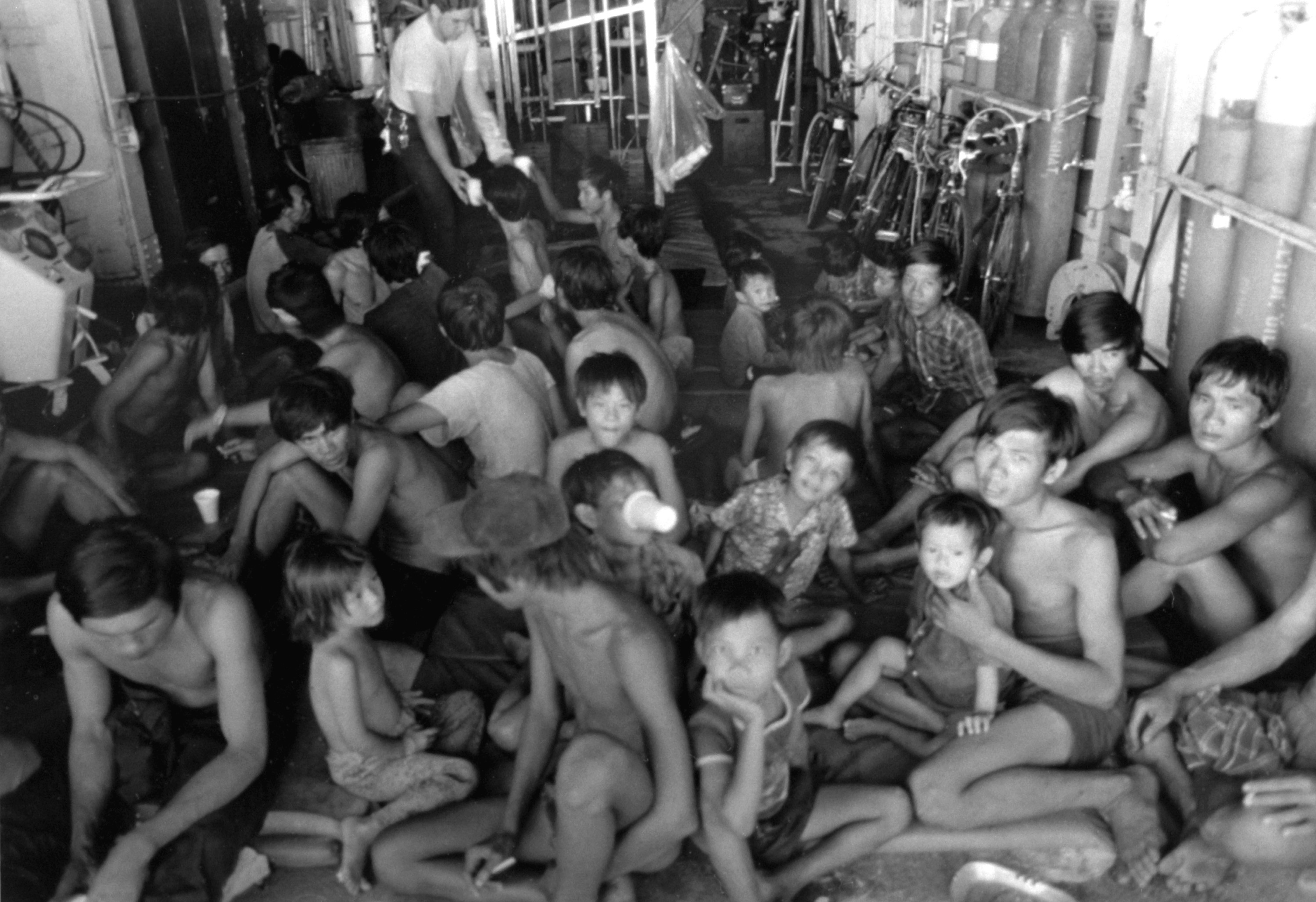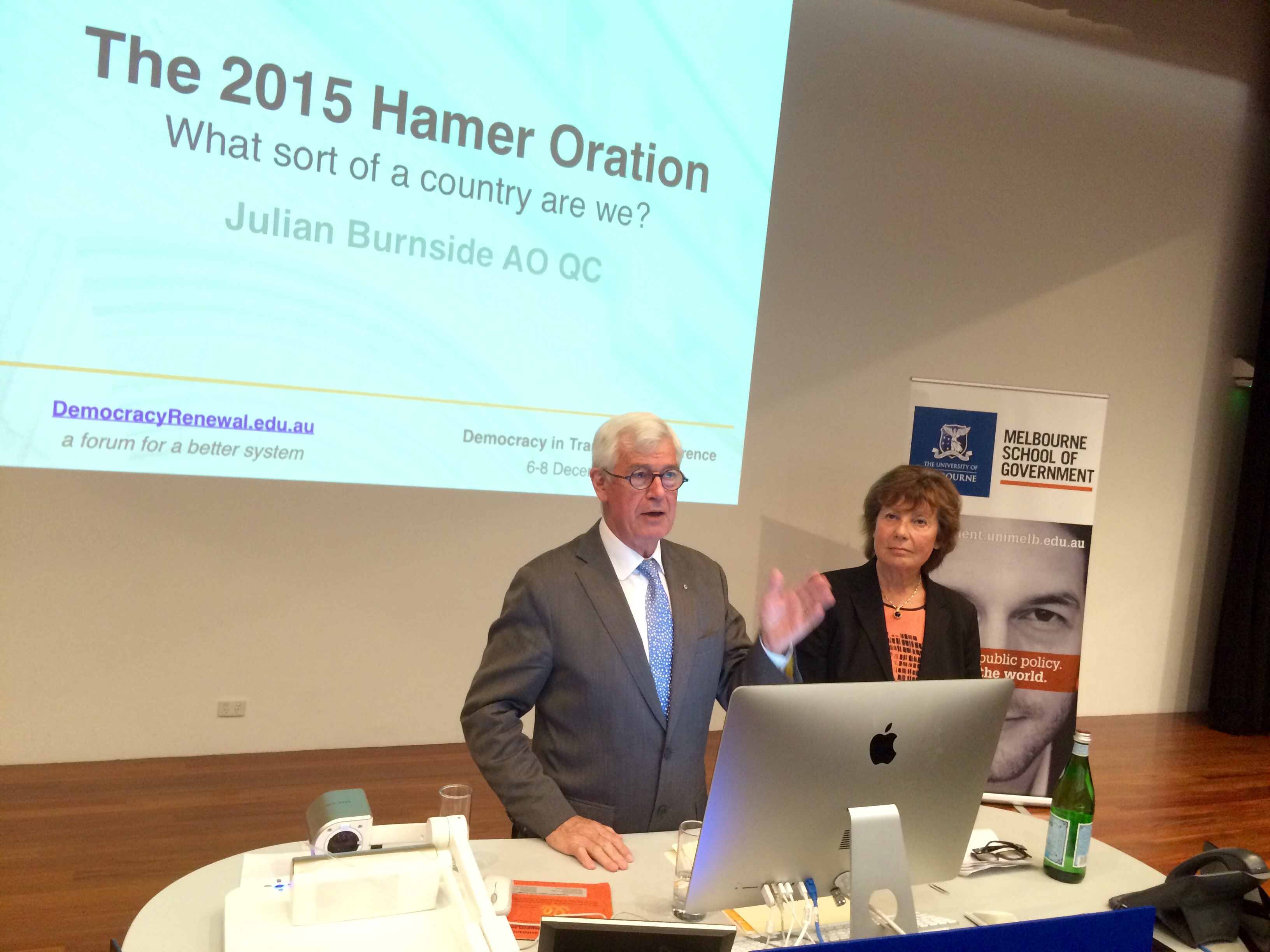What sort of country are we?

At the 2015 Hamer Oration, Julian Burnside AO QC explores how Australia’s treatment of boat people may have redefined our national character
Published 5 October 2015
The never-ending refugee crisis in Europe has dismayed – and horrified – the world.
The United Nations High Commission for Refugees (UNHCR) is planning for at least 1.4 million people to flee to western Europe by the end of 2016.
Already, more than 530,000 refugees have made the perilous journey across the Mediterranean and Aegean Seas searching for international protection and safety.
Hundreds of others have died making the journey in often unseaworthy boats. This humanitarian crisis, part of the largest movement of refugees in Europe since the Second World War, led to the Australian Government committing to resettle 12,000 Syrian refugees.
But the refugee crisis is not confined to Europe. In the Asia-Pacific region alone, an estimated 63,000 people made boat voyages in 2014, mainly from Myanmar and Bangladesh to Thailand and Malaysia, and Australia.

In this year’s annual Hamer Oration, human rights lawyer Julian Burnside AO QC puts Australia’s response to boat people under the spotlight.
Through his presentation of harrowing personal stories and thought-provoking arguments, Burnside reflects on what Australia’s refugee policies since the Tampa affair in 2001 says about the national character and the state of politics in Australia today.
The Oration was chaired by Erika Feller, the former Assistant High Commissioner of the UNHCR and currently a Vice Chancellor’s Professorial Fellow at the University of Melbourne.
Banner: Rescued Vietnamese boat people/Wikimedia